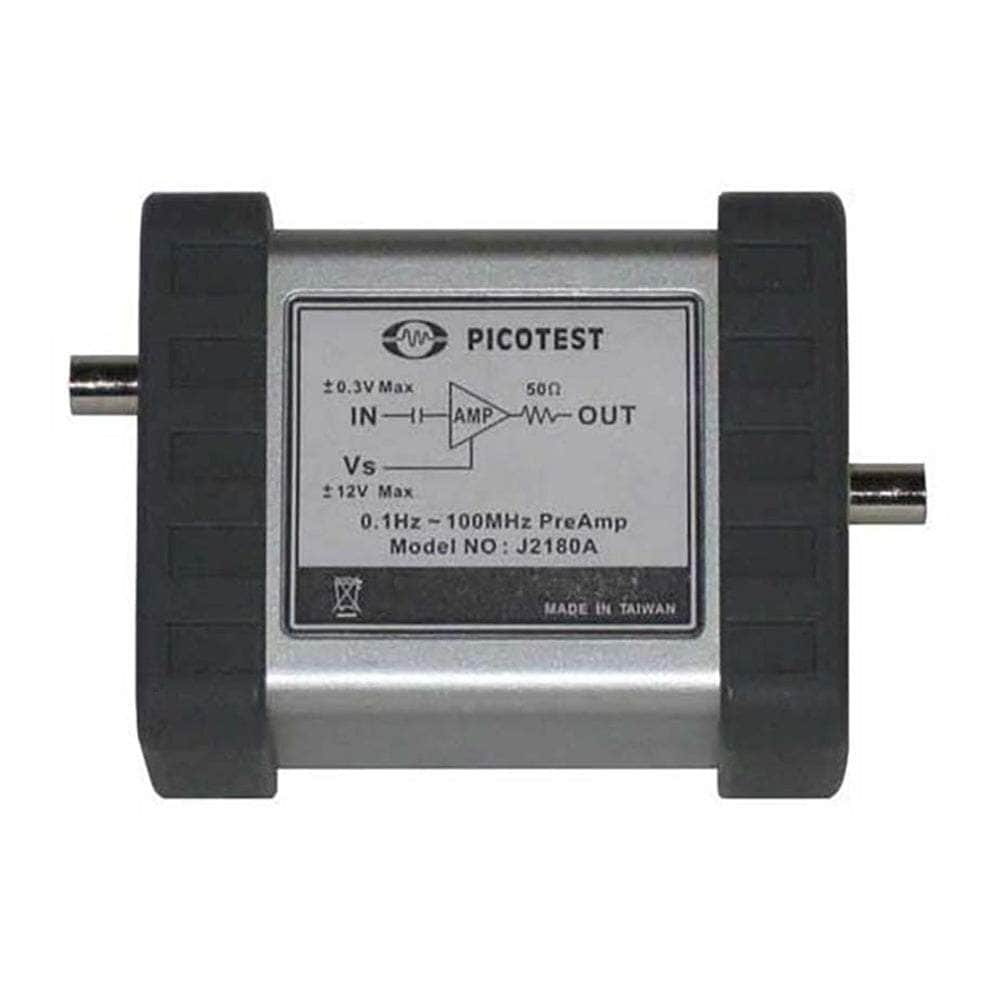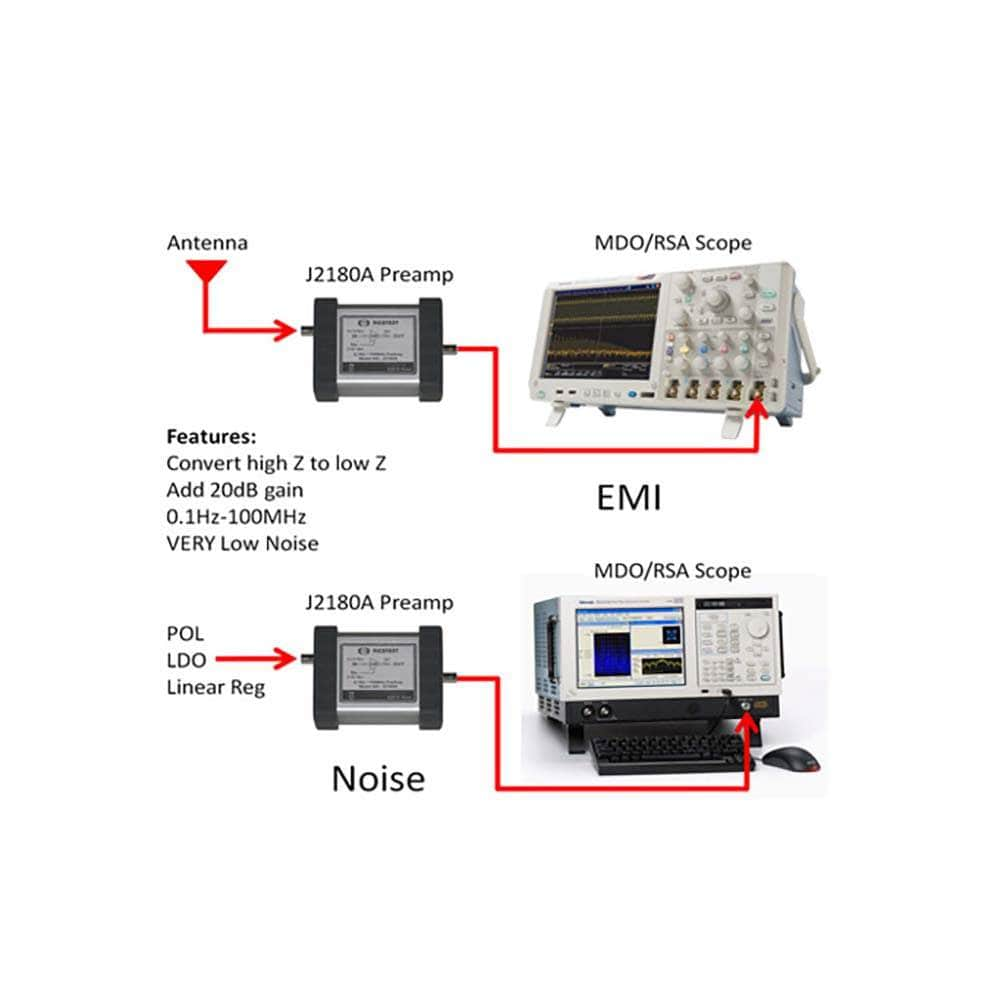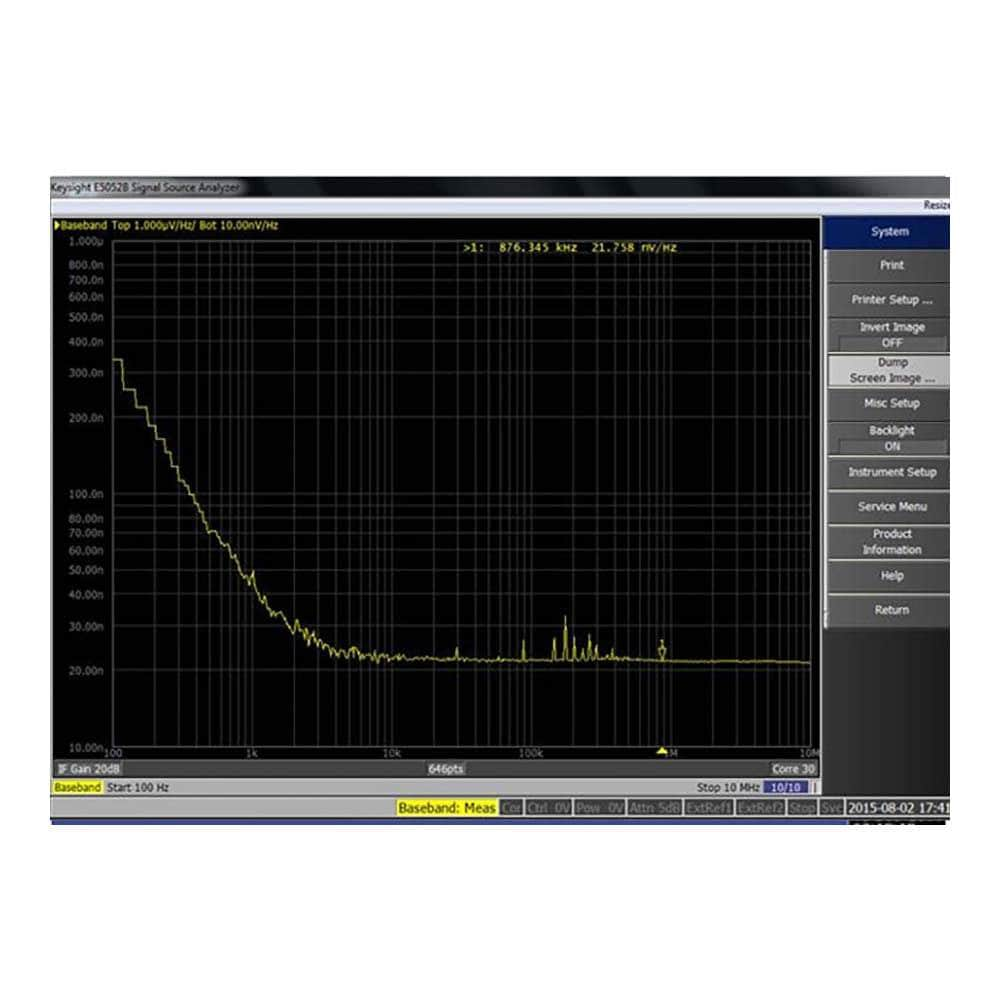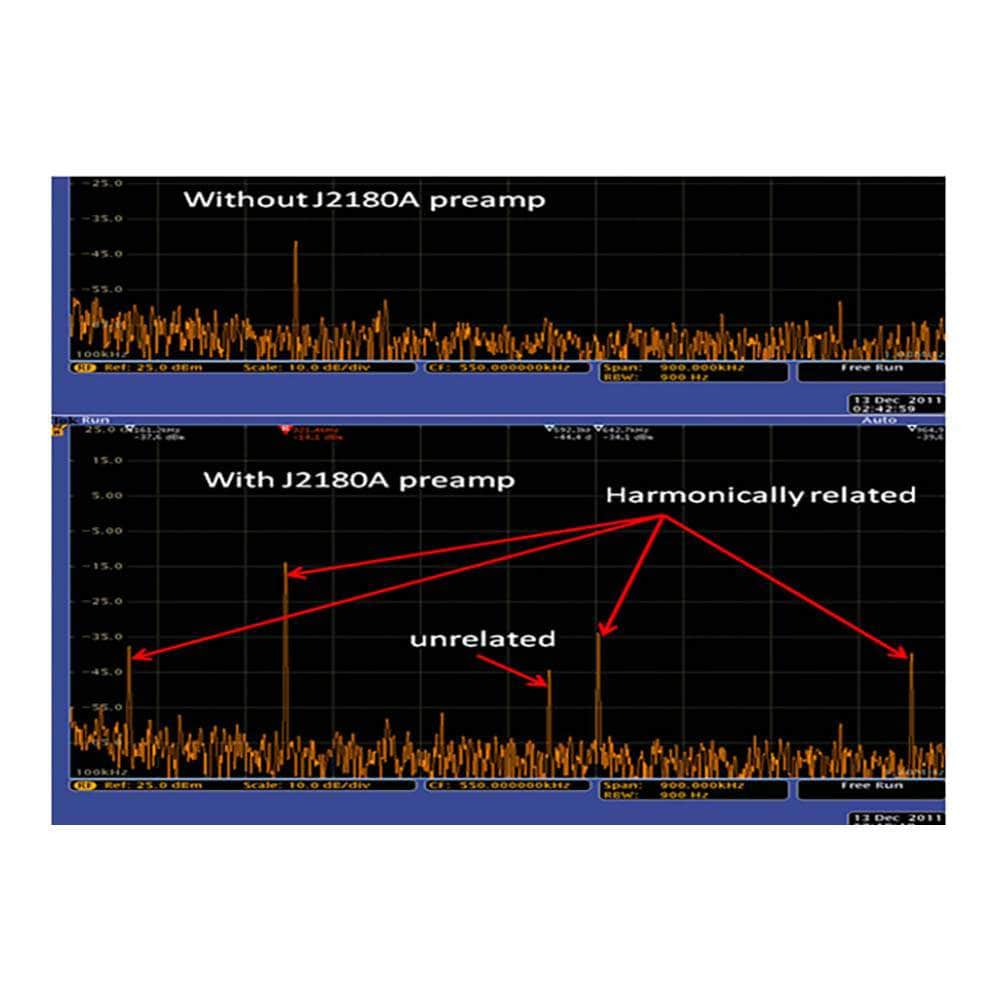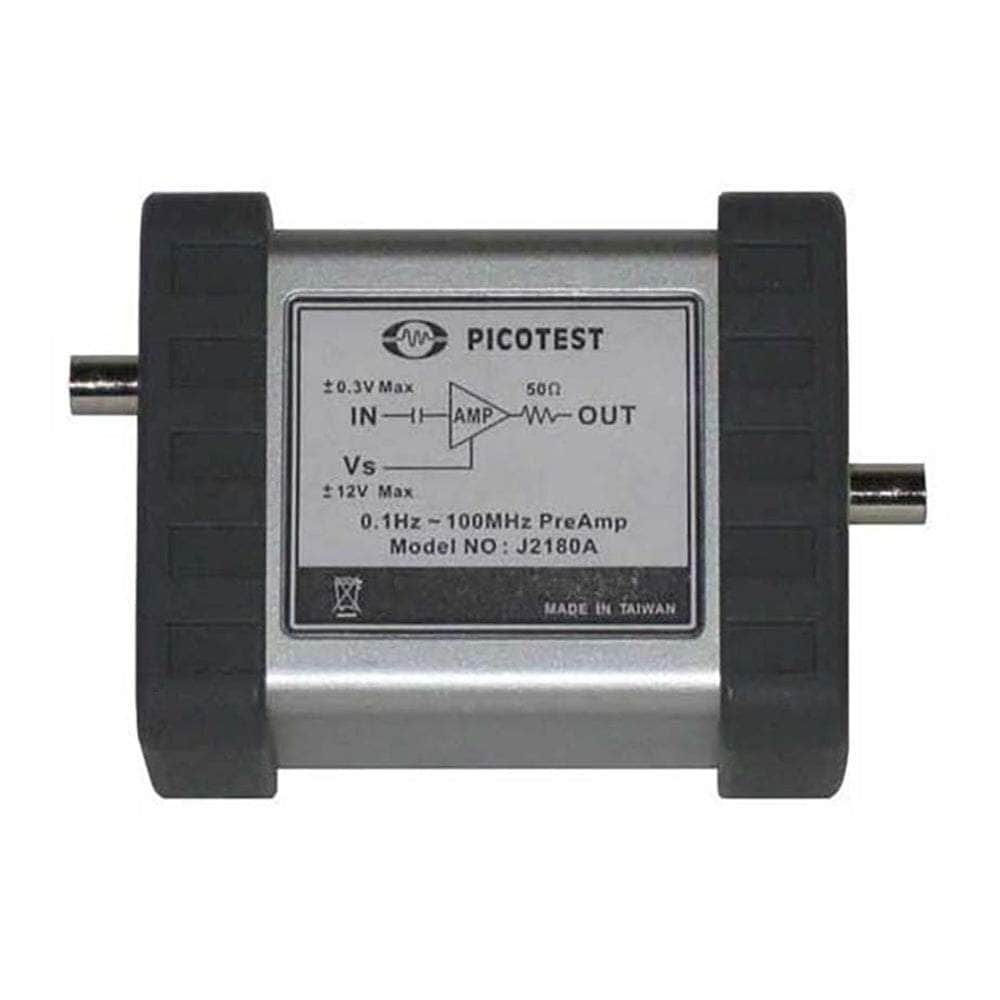
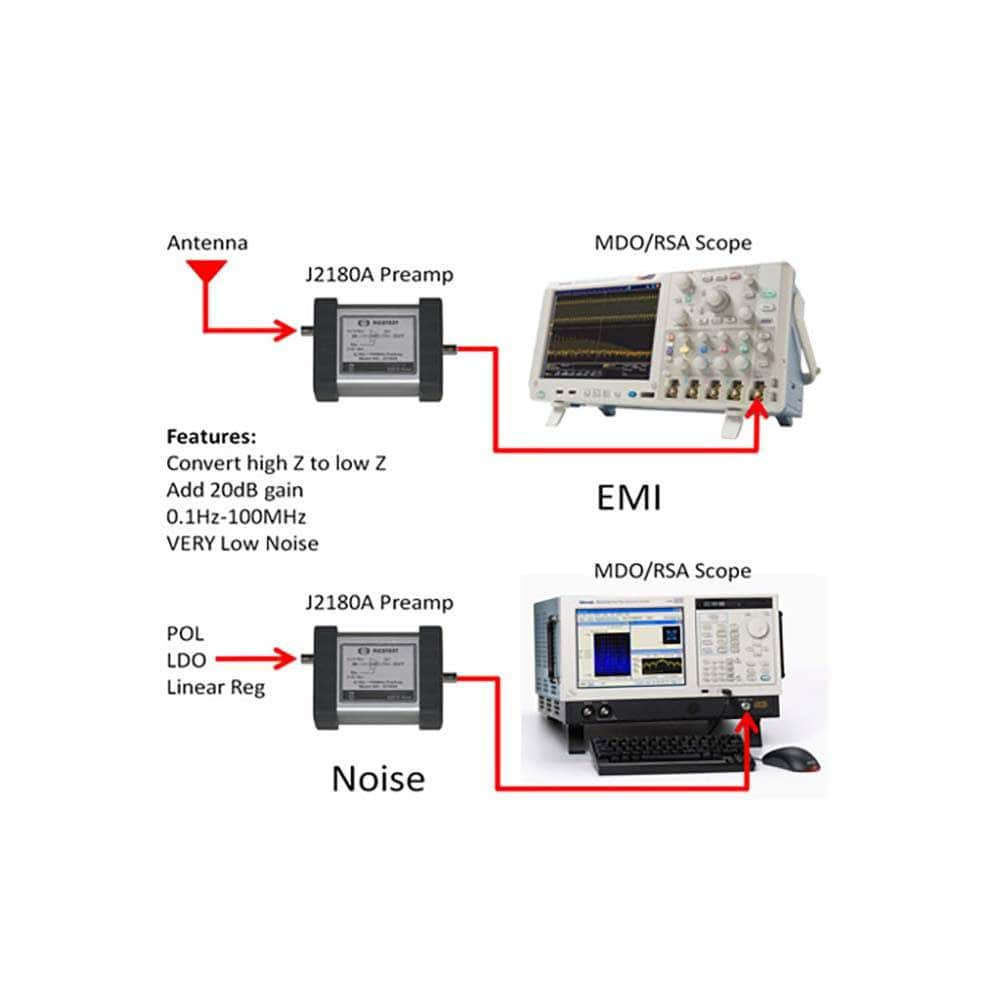
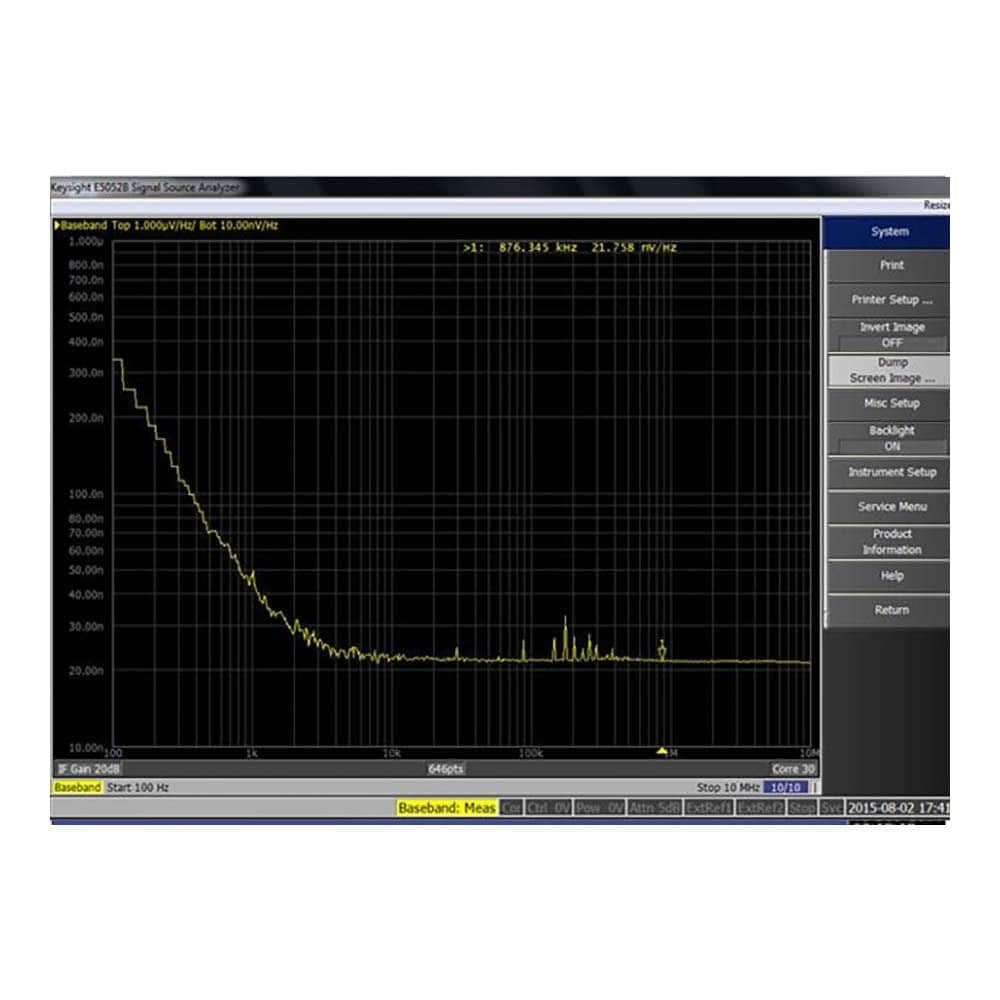
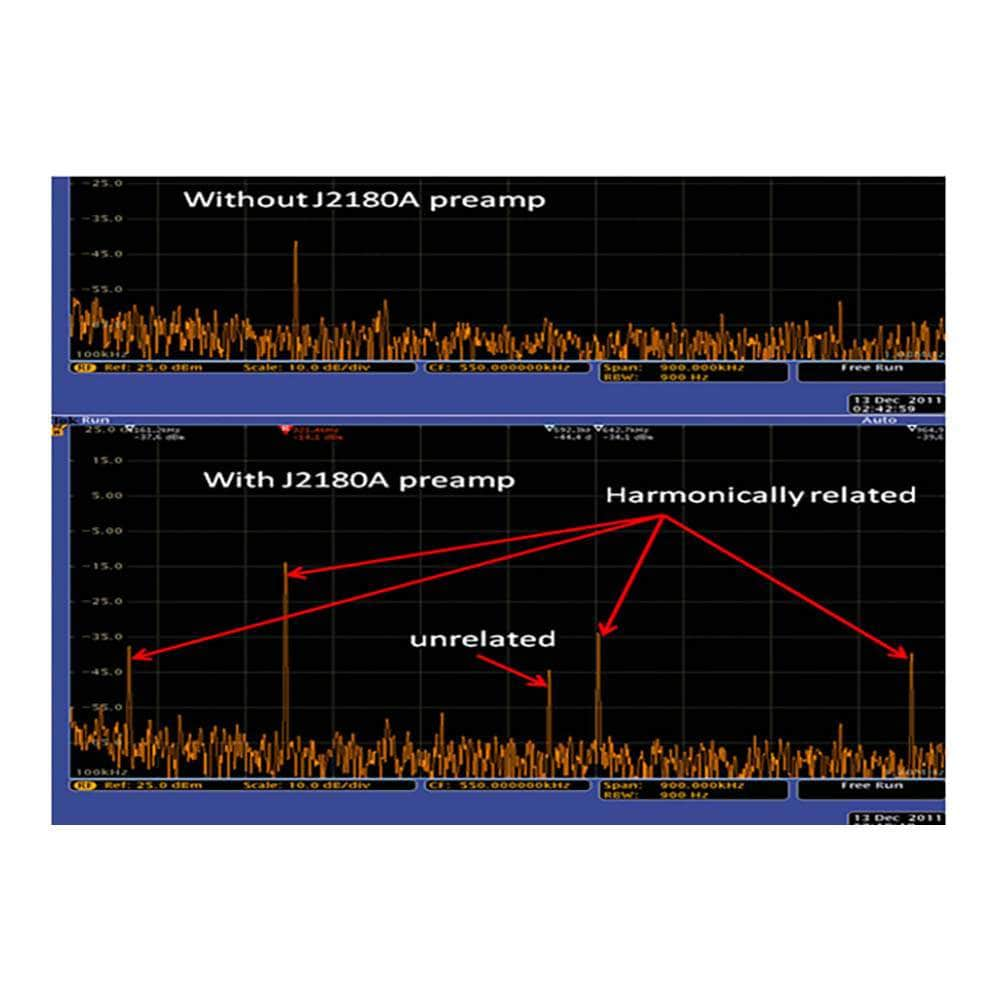
Key Features
Overview
The Picotest J2180A Ultra-Low Noise Amplifier is engineered to enhance the capabilities of your measurement tools significantly. Designed for professional design engineers, this amplifier offers unparalleled noise performance, boasting a typical noise floor of 2.4nV/√Hz for the J2180A and 1/3rd the noise for the J2180A-20.
It works seamlessly with all oscilloscopes, spectrum, and network analysers, providing a versatile solution for various measurement applications. Its high input impedance (1 MOhm || 10pF) ensures compatibility with standard probes, minimising circuit loading. The amplifier converts this high impedance to a 50 Ohm output, making it ideal for use with 50 Ohm equipment.
With a bandwidth extending from 0.1Hz to 100MHz (J2180A) or 20Hz to 100MHz (J2180A-20), it supports low-frequency and high-frequency measurements. The J2180A also features an active DC bias loop for maintaining a stable, low DC output voltage, ensuring accurate readings in audio and pulse applications.
Downloads
Frequently Asked Questions
Have a Question?
Be the first to ask a question about this.

